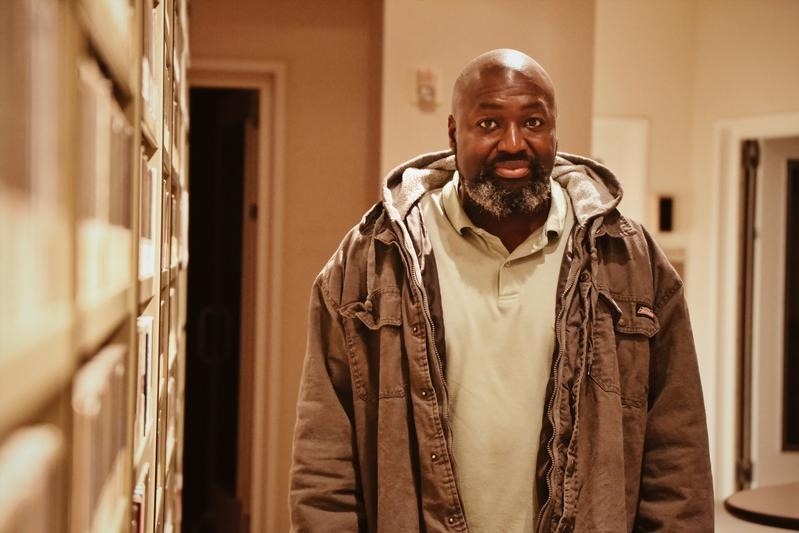
Matthew Charles fund
Donation protected

The Hill - 01/10/2018
The remarkable rehabilitation of Matthew Charles makes a case for prosecutor discretion
© Getty Images
Matthew Charles went home to Nashville in 2016 after 20 years in federal prison. He found a job, rented an apartment, and bought a car. He reconnected with his children and grandchildren and met a new woman to love. He became a weekly volunteer at a local food pantry. Charles has done everything society could ask of a fellow citizen returning from prison.
Why, then, does the U.S. Justice Department want to send him back to prison for nearly a decade?
As reported by Julieta Martinelli for Nashville Public Radio, Charles originally was sentenced to 35 years in prison for selling crack cocaine and procuring guns under an assumed name. In 2010, a federal judge shortened Charles’s sentence after Congress and the U.S. Sentencing Commission agreed to reduce penalties for crack cocaine.
The judge, it turns out, made a mistake. Because Charles qualified as a “career criminal” under federal law, he was not eligible for a sentence reduction. A federal appeals court agreed with the Justice Department and directed a new judge to re-impose Charles’s original sentence.
Last week, that judge asked the Justice Department to reconsider its position and suggested that the new U.S. attorney in Nashville, appointed by President Trump, should consider dropping some of the charges. The judge was clearly impressed by Charles’s amazing rehabilitation, which began long before he was released in 2016. As NPR reported, Charles used his two decades in prison well: teaching GED classes, working on a college degree and becoming a law clerk. He did not receive one disciplinary infraction in 20 years.
Despite Charles’s remarkable turnaround, his return to prison for another decade seems almost certain. After all, the Justice Department initiated Charles’s return when they appealed the judge’s decision to free him. The U.S. attorney is likely to argue that he is obligated to enforce the law as written, even if the outcome produces an injustice.
But that is simply not true. The prosecutor’s hands are not tied. Every day, federal prosecutors across the country exercise reasoned discretion on how to enforce the law. They — and they alone — have the power to choose whom to charge and with what crimes. For example, some prosecutors try to bring charges that carry lengthy mandatory minimum prison terms as often as they can. Others wield mandatory minimums only when they believe the sentence is warranted.
Even Attorney General Jeff Sessions, in his May 2016 charging directive, reminded federal prosecutors that strictly applying the law in every case would produce unjust outcomes and that such outcomes should be avoided. He wrote, “There will be circumstances in which good judgment would lead a prosecutor to conclude that a strict application of the above charging policy is not warranted. In that case, prosecutors should carefully consider whether an exception may be justified.”
This advice requires prosecutors to make some tough decisions. For example, figuring out whether a particular defendant should serve 35 years, as opposed to, say, 20, might involve some guesswork as to, among other things, the defendant’s ability to rehabilitate.
The case of Matthew Charles requires no such guesswork. Charles is living his future. The judge and prosecutor know that he doesn’t need additional time in prison. His 20-year prison record was spotless and in the year-plus of his freedom he has dedicated himself to family, work and charity.
Sending Charles back to prison for a decade would be a cruel and senseless choice — and, make no mistake, it would be a choice. It would do nothing to protect public safety, but rather, would increase cynicism about a system that too often appears immune to justice and blind to common sense.
Kevin Ring is the president of Families Against Mandatory Minimums (FAMM) and editor of “Scalia’s Court: A Legacy of Landmark Opinions and Dissents” (Regnery).
http://thehill.com/opinion/criminal-justice/368111-the-remarkable-rehabilitation-of-matthew-charles-makes-a-case-for
See the Fox News Story on Facebook:
https://www.facebook.com/DailyBriefingFNC/videos/210880222854986/?hc_ref=ARSgqcs3RHPCFY-Kehfha210UPASOyC_vROw3FrYSe0JS1CgVlHwXKvZM8tUlvN5tuA&fref=gs&dti=205965076662274&hc_location=group
See the Fox News Story with Judge Kevin Sharp
https://www.facebook.com/DailyBriefingFNC/videos/211185812824427/UzpfSTE0MjEzOTQ5NDk6MTAyMTY3OTQxMjExOTE2Mzk/
See the Nashville Public Radio Article:
http://nashvillepublicradio.org/post/federal-prosecutor-refuses-drop-case-against-freed-nashville-man-facing-another-decade-prison#stream/0
See the New York Times Article:
https://www.nytimes.com/2018/06/01/us/politics/pardons-justice-department-trump.html
The Young Turks Story:
https://www.facebook.com/watch/294307684380009/?from=watch_nf_masked_lockup&video_id=425901837887259
Here is the CBS This Morning Story:
https://www.cbsnews.com/news/matthew-charles-sent-back-to-prison-after-release-friend-advocates-grossly-unfair/
Matthew Charles’ story was on NBC news with Lester Holt:
https://www.nbcnews.com/news/us-news/his-release-prison-was-ruled-mistake-now-he-s-asking-n881421
Here is the story on Heavy.com
https://heavy.com/news/2018/05/matthew-charles/
The Tennessean Newspaper:
https://www.tennessean.com/story/opinion/columnists/2018/06/15/matthew-charles-alice-marie-johnson-cyntoia-brown-criminal-justice-reform/701806002/
Organizer and beneficiary
John Hairston
Organizer
Nashville, TN
Naomi Tharpe
Beneficiary